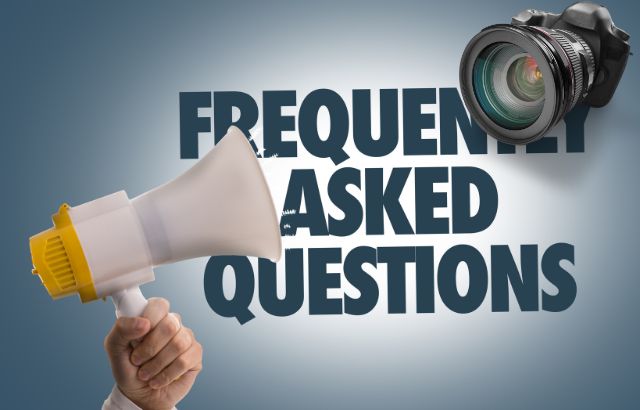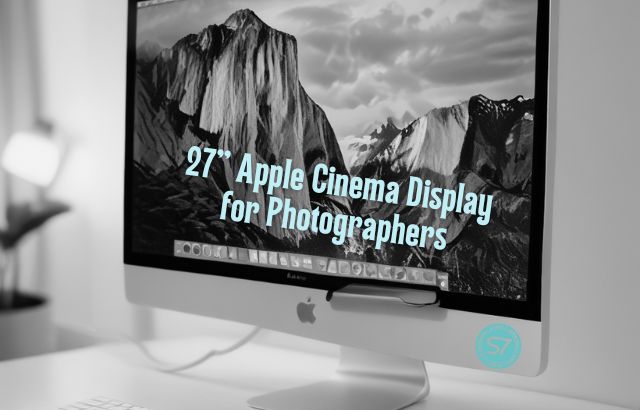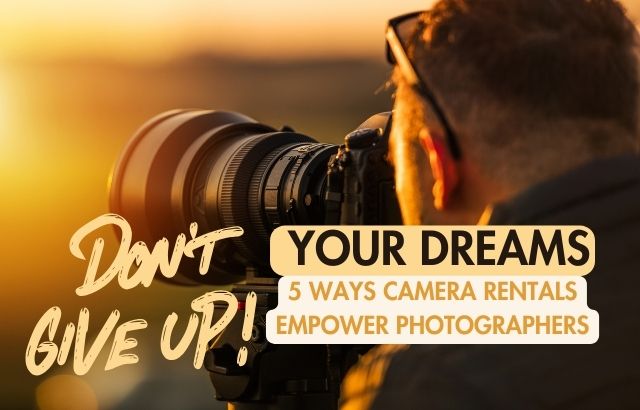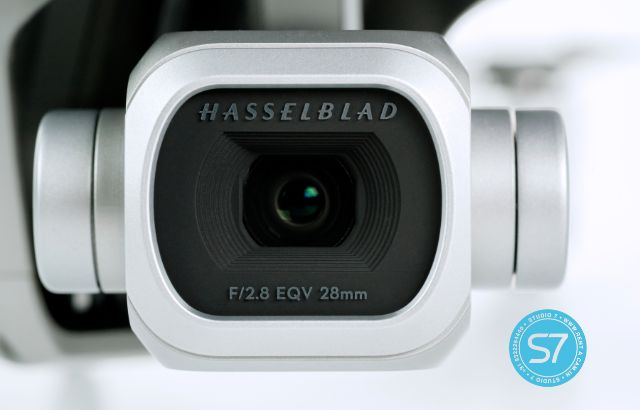What factors should photographers and videographers consider when choosing a camera rental company?

When choosing a camera rental company, photographers and videographers should consider the following factors:
1. Equipment quality: A reputable rental company should offer high-quality gear that is well-maintained and in good condition.
2. Inventory selection: The rental company should have an extensive inventory of cameras, lenses, and accessories to choose from, with options that meet the specific needs and preferences of the renter.
3. Pricing: The rental company should provide competitive pricing for its equipment, and offer clear and transparent pricing policies, including any fees or deposits.
4. Rental duration: The rental company should offer flexible rental periods based on the needs of the renter, including options for short-term or long-term rentals.
5. Insurance coverage: The rental company should provide insurance options that protect the renter from any potential damage or loss of equipment during the rental period.
6. Shipping and pickup options: The rental company should offer convenient shipping and pickup options that provide a fast and hassle-free rental experience.
7. Customer service: The rental company should provide excellent customer service and support, with responsive communication channels, knowledgeable staff, and resources to help facilitate a smooth rental process.
By considering these factors, photographers and videographers can select a trusted rental company that provides the quality equipment and support necessary to meet their needs and achieve their creative goals.

1. How does camera rental work?
Camera rental works by allowing photographers and videographers to rent cameras and equipment for a specific duration and fee. Customers can choose the gear they need, reserve it online or through a rental shop, provide necessary documents and payment, and collect the equipment for their desired rental period.
2. What are the advantages of renting a camera instead of buying?
Renting a camera offers several advantages. It allows photographers to access high-end equipment without the high upfront cost, especially for occasional or specialized use. Renting also provides the flexibility to choose different cameras for various projects. Additionally, maintenance and depreciation costs are typically handled by the rental company.
3. How can advertising photography benefit from professional-grade equipment?
Professional-grade equipment in advertising photography can significantly impact the quality and visual impact of the final images. Higher resolution, superior dynamic range, precise auto-focus, and advanced features of professional cameras can help capture stunning and detailed visuals. This, in turn, enhances the overall impact and effectiveness of advertising campaigns.
4. What should I consider when renting a camera for a specific project?
When renting a camera for a specific project, consider factors such as the type of photography or videography you’ll be doing, specific equipment requirements, budget, and rental duration. Ensure that the rental company has a reliable reputation, provides necessary accessories and support, and has a transparent rental agreement.
5. Can I use rented camera equipment for commercial advertising projects?
Yes, rented camera equipment can be used for commercial advertising projects. However, it’s essential to check the rental agreement and any specific terms regarding commercial use. Some rental companies may have special rates or requirements for commercial projects, so it’s crucial to communicate your intentions and clarify any usage restrictions.

What are the most popular camera rentals?
The most popular camera rentals vary depending on the location and market demand. Some popular camera rental options may include Canon EOS R5, Sony A7 III, Nikon Z6, and Blackmagic Pocket Cinema Camera 4K.
How can I start a camera rental business in India?
To start a camera rental business in India, you can follow these steps:
1. Research the market and identify your target customers.
2. Set up a business entity and obtain necessary licenses and permits.
3. Purchase a variety of cameras and equipment for rental.
4. Create a user-friendly website or app for customers to browse and book rentals.
5. Develop a pricing strategy and rental terms and conditions.
6. Market your business through online and offline channels to reach potential customers.
7. Provide excellent customer service to build a strong reputation.
What is the best camera for photography?
The best camera for photography depends on individual preferences and requirements. Some popular options for professional photography include Canon EOS 5D Mark IV, Nikon D850, Sony A7R IV, Fujifilm X-T4, and Sony Alpha A9 II.
Which camera is better than DSLR?
There are several cameras that are considered better than DSLRs in certain aspects. Mirrorless cameras, such as Sony Alpha series, offer advantages like compact size, silent shooting, and excellent autofocus performance. However, the choice between a DSLR and a mirrorless camera ultimately depends on your specific needs and preferences.
Can I run a photography business from home?
Yes, it is possible to run a photography business from home. Many photographers start their businesses from their homes, especially when beginning. However, it is important to check local regulations and any specific requirements related to running a business from home in your area.
How do I start a mini photography business?
To start a mini photography business, you can follow these basic steps:
1. Define your photography niche or specialty.
2. Gather essential photography equipment.
3. Build a portfolio to showcase your work.
4. Create an online presence through a website or social media platforms.
5. Develop a pricing structure for your services.
6. Promote your business through targeted marketing efforts.
7. Provide exceptional customer service and deliver high-quality results.
How much does it cost to start a small photography business?
The cost to start a small photography business can vary significantly depending on factors such as equipment, location, marketing expenses, and business setup costs. It is recommended to create a comprehensive business plan to estimate the costs involved and plan accordingly.
What is the No 1 camera?
There isn’t a definitive “No 1” camera as the best camera for someone depends on their specific needs, preferences, and budget. The camera that is considered the best for one person may not be the best for another.
Which camera is best for everyday use?
For everyday use, a popular choice is a compact or mirrorless camera that offers a balance between image quality and portability. Some recommended options include Sony RX100 VII, Canon PowerShot G5 X Mark II, Fujifilm X100V, and Olympus OM-D E-M5 Mark III.
Which company camera is best?
There are several reputable camera manufacturers known for producing high-quality cameras. Some of the top camera companies include Canon, Nikon, Sony, Fujifilm, and Panasonic. The choice of camera brand often depends on personal preferences, budget, and specific camera features.







